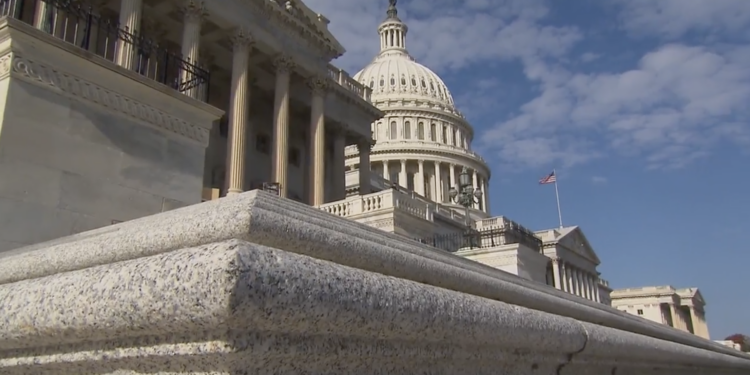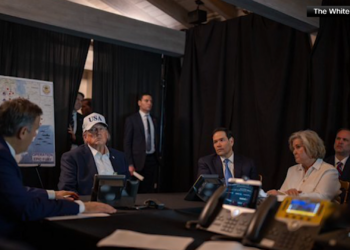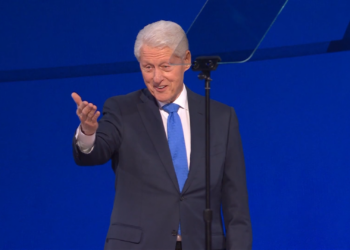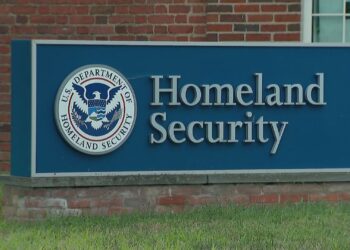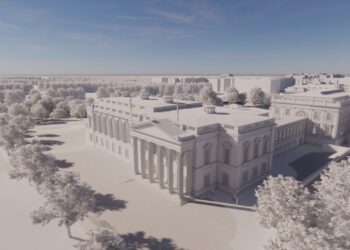By Brendan Scanland
WASHINGTON, D.C. — With the government spending deadline on the horizon, Congress is working to avoid a shutdown before October 1.
This week, House Speaker Mike Johnson (R- LA) pushed a temporary six-month funding plan, known as a Continuing Resolution (C.R.) with the SAVE Act tacked onto it.
The Safeguard American Voter Eligibility Act, or the SAVE Act, passed the House in July. It would require documentary proof of U.S. citizenship in order to register to vote in federal elections.
“It creates a documentation requirement for laws that have existed for decades. Voting by non-citizens is already illegal in federal elections,” said Rachel Orey, the director of the Bipartisan Policy Center’s Election Project. “We have no evidence to suggest that non-citizens vote in federal elections at any kind of scale,” Orey added.
Although some cities allow non-citizens to vote in local elections, Orey emphasized it is illegal for non-citizens to vote in federal elections.
“While there are certain instances in which non-citizens have attempted to register and vote in the past. Those are routinely investigated and prosecuted by relevant state authorities,” said Orey.
Orey says trying to pass the SAVE Act now could complicate things for election officials and voters this close to a huge election.
“This law would essentially undermine existing voter registration processes, create additional work and burden on election offices that are already underfunded and overwhelmed, and ultimately risk undermining voter registration by creating barriers for eligible citizens,” said Orey.
Johnson’s combination of the Save Act with the C.R. drew strong criticism from top Democrats and the White House, which said President Biden would veto the measure.
“The House should stop wasting time on a partisan C.R. that’s going nowhere and work in a bipartisan way to get this done,” said Senate Majority Leader Chuck Schumer (D- NY).
But some House Republicans, like Congressman Mike Kelly (R- PA), argue the SAVE Act is commonsense legislation.
“Voter ID, I think is absolutely critical,” said Kelly. “People deserve to have an idea that our elections are free and fair and every person has the ability to vote, every citizen. You need to be registered, you need to have ID. I don’t think that’s asking too much,” he added.
“Non-citizens voting in our elections erodes the sanctity of our democracy,” said Congressman Nick Langworthy (R- NY) who supports the SAVE Act but wants to avoid a government shutdown.
“We obviously are not going to solve our spending decisions at the height of an election season. Temperatures are hot. We’re going to have to have a C.R. to keep the government open,” said Langworthy.
“I am very cautious about shutting down the government,” said Kelly.
With Democrats and at least eight House Republicans opposed to the measure, Speaker Johnson pulled the measure and is heading back to the drawing board to build consensus.
“People have concerns about all sorts of things. That’s how the process works. And sometimes it takes a little more time,” said Johnson.

